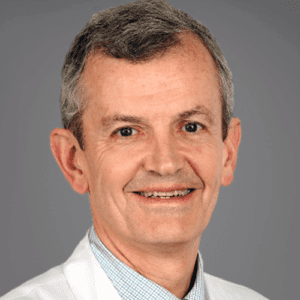
The Ptarmigan Trail
March 12, 2019

“‘What is truth?’ Pilate asked…” (John 18:38, NIV 1984).
I spoke again to my friend in the mountains, the one who follows Buddha rather than Christ, the one who suffered multiple surgeries from a skateboard accident. We met up again in Colorado when I was there recently for a medical conference. We climbed together to the Ptarmigan Lakes at 12,500 feet, wrapped in the grandeur of God’s creation. I shared the gospel and he shared his faith in Buddhism.
It stands to reason that two conflicting statements should not both be true. And yet, our present world suggests they can. How do we as individuals, as followers of Christ, as people of reason, decide what is truth in life? When reasonable people disagree about important issues, how do we decide who is correct?
In my own simplistic thinking, I know of four ways to discover truth—to discover “life as it really is.”
- Truth by sight and reason: If I touch a red ember and pull my hand away with a blister, the truth of that ember is its heat, and reason suggests I should not touch it again.
- Truth by consensus: In Acts 21, when Paul was headed for the last time to Jerusalem where he would be arrested and sent to Rome, his friends told him over and over again not to go. The consensus was he would be harmed. And this was true.
- Truth by revelation: In the same story in Acts, Paul tells us why he is going to Jerusalem, “And now, compelled by the Spirit, I am going to Jerusalem…” (Acts 20:22, NIV 1984).
- Truth by relationship: Paul declared from a prison cell, “I want to know Christ and the power of his resurrection and the fellowship of sharing in his sufferings…” (Philippians 3:10, NIV 1984).
Each of these avenues is a valid way to seek truth in life. But they do not always agree. The Buddhist philosophy does not agree with the Lordship of Christ. Sight, reason and consensus do not clearly sort out for us the truth between these two world faiths, and we have the same problem with many questions in our lives.
When seeking truth as followers of Christ, I believe we should consider all pathways to truth, but they should not be “weighted” the same. The heat of an ember on my skin is more valid than a news story on television. With so much of our comprehension, there are factors of which we are unaware. Only God knows it all. Thus, as Oswald Chambers stated, “When you reckon things up, bring God in as the chief factor in your calculations.”
The question comes, “Have I come to the place where I am committed to stand firmly on my relationship with God and His revealed truth, even if it conflicts with sight, reason and consensus?” Much of the deeper truth in life requires such a commitment. Clearly, we should question God when a conflict between God and reason exists; but eventually, we must rest our feet on the solid ground of Jesus and His Word.
So, though my friend’s “truth” in Buddhism may seem more reasonable than my truth in Christ to millions in this world, I know that Christ is Lord, because God has revealed it in His Word, and because I speak each day with the Christ whom He has revealed.
Dear God,
Let me use the mind You have given me to discover truth in this life and let me listen to You when my reason gets it wrong.
Amen

